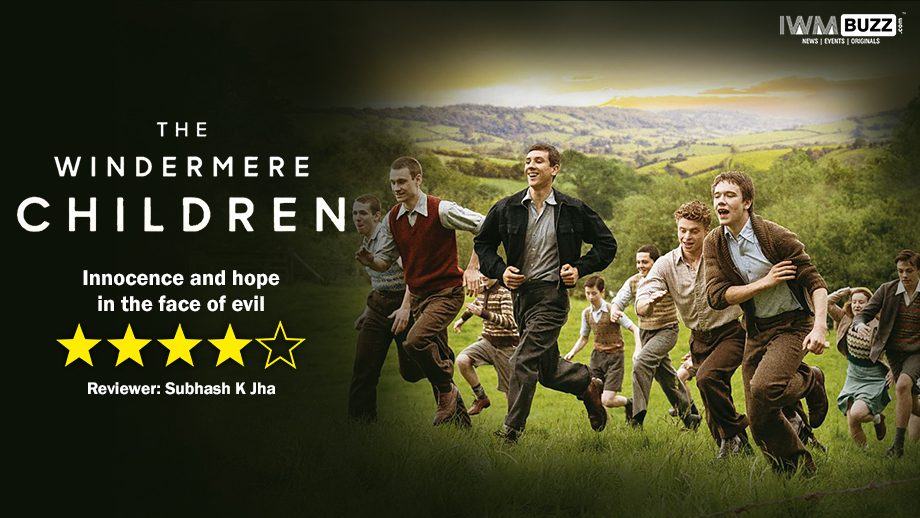Written by Simon Block and directed by Michael Samuels.
Rating: ****(4 stars)
On 27 January 1945, the Auschwitz Nazi concentration camp was liberated by the Red Army. But can humanity ever wipe out the slur of the evil that one man named Adolf Hitler perpetrated on the Jews?
Great films about Nazi atrocities such as Steven Spielberg’s Schindler’s List and Alan Pakula’s Sophie’s Choice took us straight into the horrors of Nazi Germany. The Windmere Children chooses a path of refreshing departure. It brings to us the true-life story of young holocaust survivors, children so young that they are unable to process even a part of the horror they’ve been subjected to.
This is the story of 300 children brought to England after WW2, trying to understand a world that wants to heal their traumatized souls. It’s often very dramatically told and sometimes I found the punctuations in the narrative to be too affirmative. For example, a group of local British boys heckle their Jew guests by gesturing ‘Heil, Hitler.’ One of the holocaust survivors pees in his pants. The supervisor of the rehabilitation process walks over to the hecklers and gives them a crash course in compassion. The hecklers walk away repentant.
If only life’s cruelties were that simple to eradicate. This film shows how compassion can only heal to a point. Beyond that, the victim is left with only his or her own devices to destroy the inner demons.
The Windmere Children chooses to spread its narrative into a pastiche of positivity. It’s memorable for its optimism and for the gallery of young authentic Jew actors (no Meryl Streep trapezing over her cultivated Polish accent in Sophie’s Choice) who play the young holocaust survivors (some of them toddlers!!!) with such heartbreaking honesty.
I felt my heart break into many pieces to see their fragile innocence trying to survive beyond the brutality of the death camps where they were imprisoned before being rescued.
This television feature-film has many passages of extraordinary rehabilitation. The little children don’t take the comfortable beds they are given in Windmere but instinctively sleep on the floor. Encouraged to paint and sketch, they draw from their demoniacal past and grope with the English language, trying to under the phonetics of ‘Family’ while coming to the realization that they have no family. They attack the bread served at meals as though it were their last, which is what they had gathered about their doomed lives in concentration camps.
The magical lakeside setting creates a kind of hushed redemptive atmosphere for the children where they struggle with demons that would never leave them. Gently plodding on through their healing process, the film ends by showing us the real-life survivors in their old age speaking about how they coped with the baggage of indescribable brutality in their new adopted homes in London.
This is a wonderful therapeutic film that must be seen during these times when history is making the same mistakes of highlighting racial supremacy and religious hegemony over humanity.


